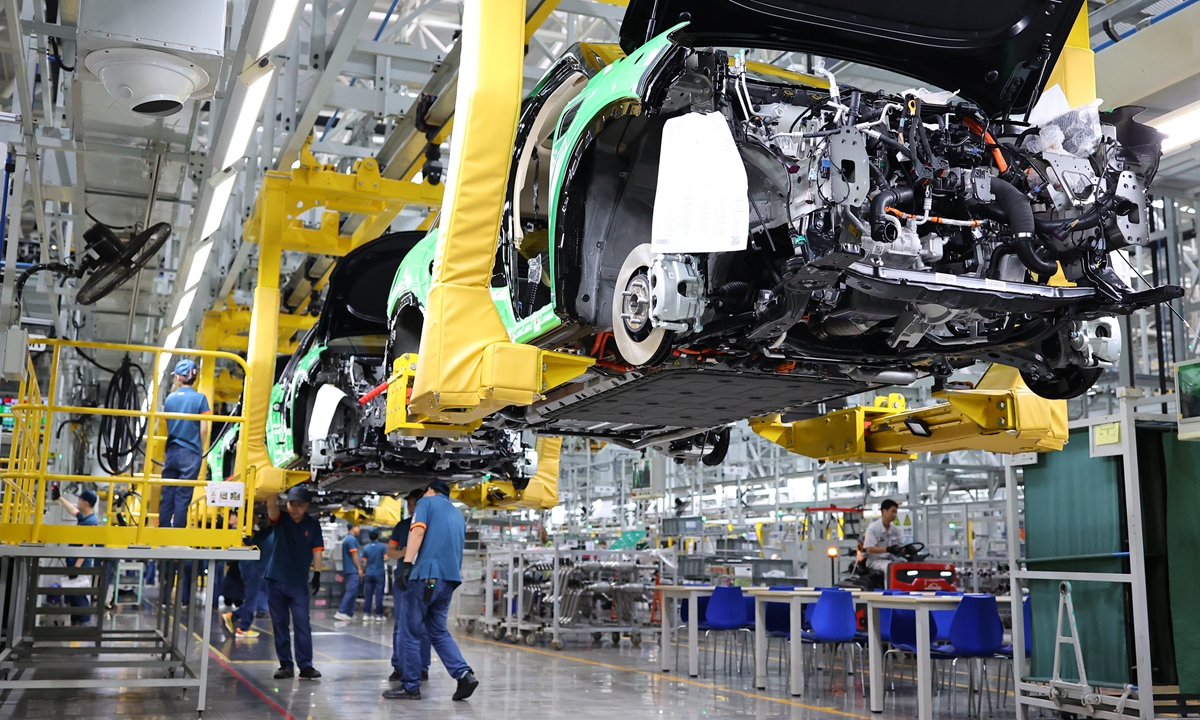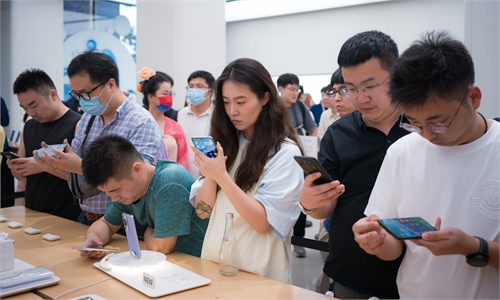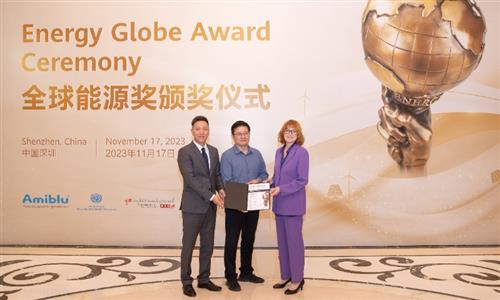
Workers assemble new-energy vehicles (NEVs) at a plant in Southwest China's Chongqing Municipality to fill overseas orders on September 21, 2023. NEV exports totaled 727,000 units in the first eight months of 2023, up 110 percent year-on-year, data from the China Association of Automobile Manufacturers showed. Photo: VCG
Chinese vehicle producer Changan Automobile's shares closed limit-up on Monday after the company said that it would invest in Huawei's new planned subsidiary that aims to become a leader in intelligent vehicle systems and component solutions amid intensifying competition in China's new energy vehicle (NEV) market.
The two companies announced in a statement on Sunday that they had signed an investment cooperation memorandum, under which Huawei plans to establish a new company focusing on research and development (R&D), production, sales and services of intelligent driving systems and incremental components for smart connected vehicles.
Changan plans to invest in the company and engage in strategic cooperation, with the intention of acquiring a stake of no more than 40 percent.
The new company, serving as an open platform for the automotive industry, will extend equity participation invitations to existing strategic partner automakers and other investors. This approach aims to foster a diversified ownership structure for the company, according to the statement.
Changan and Huawei will leverage their respective strengths and collaborate closely with strategic partner automakers to accelerate the large-scale commercialization of intelligent technology, so as to provide a first-class intelligent experience for users worldwide and propel the Chinese smart automotive industry toward scalable, integrated and shared development, Zhu Huarong, chairman of Changan, said in the statement.
Huawei has been exploring new business models in the vehicle sector to expand its network of partners and customers, and to boost sales of its intelligent connectivity systems and smart driving products, Zhang Xiang, president of the New Energy Vehicle Technology Research Institute, Jiangxi New Energy Technology Vocational College, told the Global Times on Monday.
Huawei has been relatively successful within the industry, and the collaboration between Huawei and Changan is a win-win situation, according to Zhang.
Although Huawei is well-known in China's automotive market, its sales haven't been stellar. Among the ranks of emerging players, the odds of success for Huawei remain to be seen, Zhang noted.
Emerging players in the NEV sector, such as Nio, XPeng Motors and Li Auto, have built their own factories, achieved vehicle R&D capability and shown better sales performances, Zhang said.
In recent years, the Chinese NEV industry has experienced rapid development, with both traditional automakers and new players eagerly entering the fray.
The NEV sector has provided a fresh "track" for the transformation, upgrading and high-quality development of the Chinese automotive industry. The nation has maintained its position as the global leader in the production and sales of NEVs for eight consecutive years, according to media reports.
In the first 10 months of the year, China's NEV production reached 7.35 million units, up 33.9 percent year-on-year, while NEV sales stood at 7.28 million, up 37.8 percent, per data from the China Association of Automobile Manufacturers.



